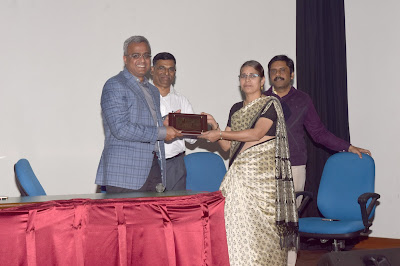An IPR Special Lecture was organised on 6th of November 2019 and Dr.Padma Satish, Chief Technology Officer, IIT Bombay delivered a lecture on "Management of IP in Academia : AN enabler for bridging the gap between innovation and commercialization". Dr. Padma shared the practices of IP filing and management in IIT Bombay. The event witnessed a great participation from the students and faculty.
* Student inventors were felicitated by awarding "certificate of student invention" for fling patent from their B.Tech/M.Tech project works. This year a total of 10 students have received the award.
* Granted patent certificates were given to the faculty inventors in this event to encourage inventors and to promote the IP generation. Four inventors/authors were given the granted patent/ registered copyright certificates.
The lecture noted the Prof. G.G. Roy, Associate Dean SRIC, Prof. M. Padmavati, Dean RGSOIPL. Prof. C. R. Raj, PIC, IPR briefly mentioned the new initiative in the generation of quality IP in our institute.
The students of Technology Transfer Group given their best effort to successfully organize this lecture.



























